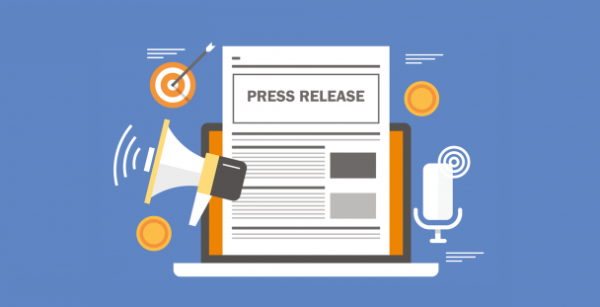Self-employed grant claimants warned of tax hit
The Low Incomes Tax Reform Group (LITRG) is concerned that recipients of the Government’s Self-Employed Income Support Scheme (SEISS) grant1 might not realise that it is taxable. It has led LITRG to warn that, for many, a third of the grant might have to be ‘paid back’, in tax and Class 4 National Insurance (NIC).

Grants made to the self-employed and partners in trading businesses under the SEISS scheme are likely to be included in claimants’ 2020/21 Self Assessment tax returns.2
Claimants might not appreciate that income tax and Class 4 National Insurance is due on the grant and payable by 31 January 2022 at the latest.3 LITRG fears that people could instead assume the amount is exempt from tax, particularly as it is described by the Government as a ‘grant’.4
Victoria Todd, Head of LITRG, said:
“Many claimants of SEISS grants might, understandably, use the money as soon as they get it, for example, to catch up on liabilities or to meet essential living costs – but they need to think now about budgeting for income tax and National Insurance on it.”
The timing of the grants – early in the tax year – means that individuals might have to forecast their total taxable profits for 2020/21, so they can estimate the amount of tax and National Insurance due on the grant. For many, this is likely to be 20 per cent tax and nine per cent Class 4 National Insurance.5
Victoria Todd said:
“The Government has announced recently that a second wave of grants will be paid under the scheme in August 2020.6 We urge HMRC to do as much as they can to publicise that the grants are chargeable to income tax and National Insurance, to reduce the risk of people being surprised by higher-than-expected 2020/21 tax bills.”
Self-employed subcontractors in the construction industry will need to watch out for the SEISS grant being paid without tax taken off. This is different to their other, usually taxed, income and it could mean that they do not get their usual expected refund after submitting their tax return next year.
Notes for editors:
1. Claims for the SEISS grant, for the self-employed and those in trading partnerships whose businesses have been adversely affected by the coronavirus outbreak, have been possible from 13 May. Over 2.3 million individuals have made claims amounting to £6.8 billion, with HM Revenue & Customs processing most of these within just six working days. See https://content.govdelivery.com/accounts/UKHMRCED/bulletins/28e0dbf.
2. Under draft legislation published on 29 May, the SEISS grant will be taxable in 2020/21 and there is no apportionment back to 2019/20. See https://www.gov.uk/government/consultations/draft-legislation-taxation-of-coronavirus-covid-19-support-payments.
3. Depending on the trader’s profits for the 2019/20 tax year, payments on account towards their 2020/21 liability may be due on 31 January 2021 and 31 July 2021 with any final balancing payment due on 31 January 2022. Claimants of SEISS grants will need to be careful to include the amounts received in their estimated 2020/21 tax calculation before claiming to reduce any payments on account due towards their Self Assessment liability for that year.
4. The term ‘grant’ may be construed as meaning something given or awarded to you, for example, and could easily be conflated in people’s minds with grants for studying/scholarships which would not normally be taxable. https://www.collinsdictionary.com/dictionary/english/grant. When referring to the Self-Employment Income Support Scheme grant, we acknowledge that Government and HMRC have referred to it as a ‘taxable grant’ – nevertheless, anecdotal evidence from our contact with claimants suggests their awareness of it being taxable may be low.
5. These rates assume that the income tax personal allowance of £12,500 and the Class 4 NIC lower profits limit of £9,500 for 2020/21 are exceeded by the claimant’s other profits, and that the individual is paying tax at the main UK rate (Scottish taxpayers will pay income tax at the Scottish rates). The effective tax and NIC could be more or less than 20% and 9% respectively, depending on how the business fares for the rest of the accounting period ending in the 2020/21 tax year. Note that those with an accounting period ending earlier in the tax year (for example, 30 April) could find it easier to evaluate the tax charge on the SEISS grant, as it will be amalgamated with profits for the accounting period ending 30 April 2020.
6. See https://www.gov.uk/government/news/chancellor-extends-self-employment-support-scheme-and-confirms-furlough-next-steps
7. LITRG publishes guidance on the SEISS here: www.litrg.org.uk/tax-guides/coronavirus-guidance/coronavirus-self-employment-income-support-scheme
8. Low Incomes Tax Reform Group
The LITRG is an initiative of the Chartered Institute of Taxation (CIOT) to give a voice to the unrepresented. Since 1998 LITRG has been working to improve the policy and processes of the tax, tax credits and associated welfare systems for the benefit of those on low incomes.
The CIOT is the leading professional body in the United Kingdom concerned solely with taxation. The CIOT is an educational charity, promoting education and study of the administration and practice of taxation. One of our key aims is to work for a better, more efficient, tax system for all affected by it – taxpayers, their advisers and the authorities. The CIOT’s work covers all aspects of taxation, including direct and indirect taxes and duties. The CIOT’s 19,000 members have the practising title of ‘Chartered Tax Adviser’ and the designatory letters ‘CTA’, to represent the leading tax qualification.
Contact CIOT External Relations on 0207 340 2702 / Out of hours contact: George Crozier, 07740 477 374
